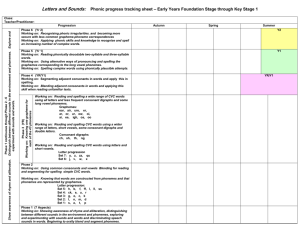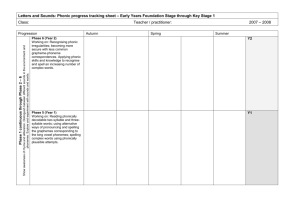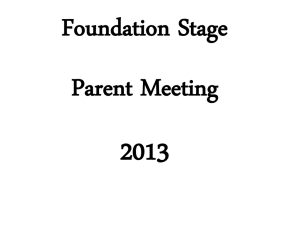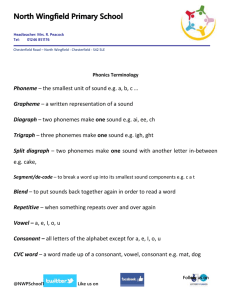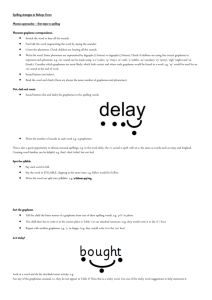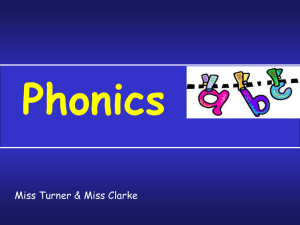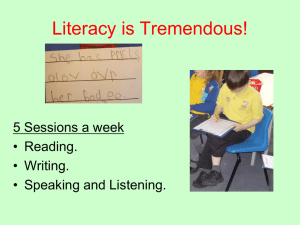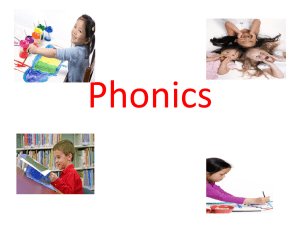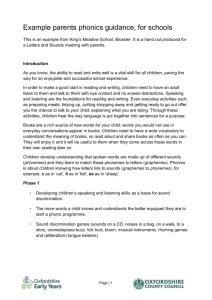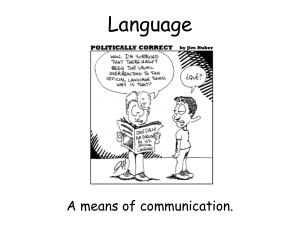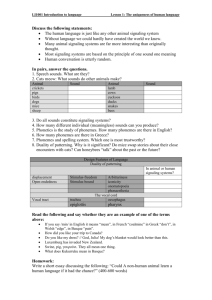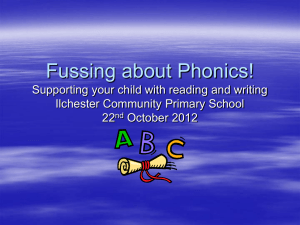Tracking_with_3_boxes_for_phase_5
advertisement
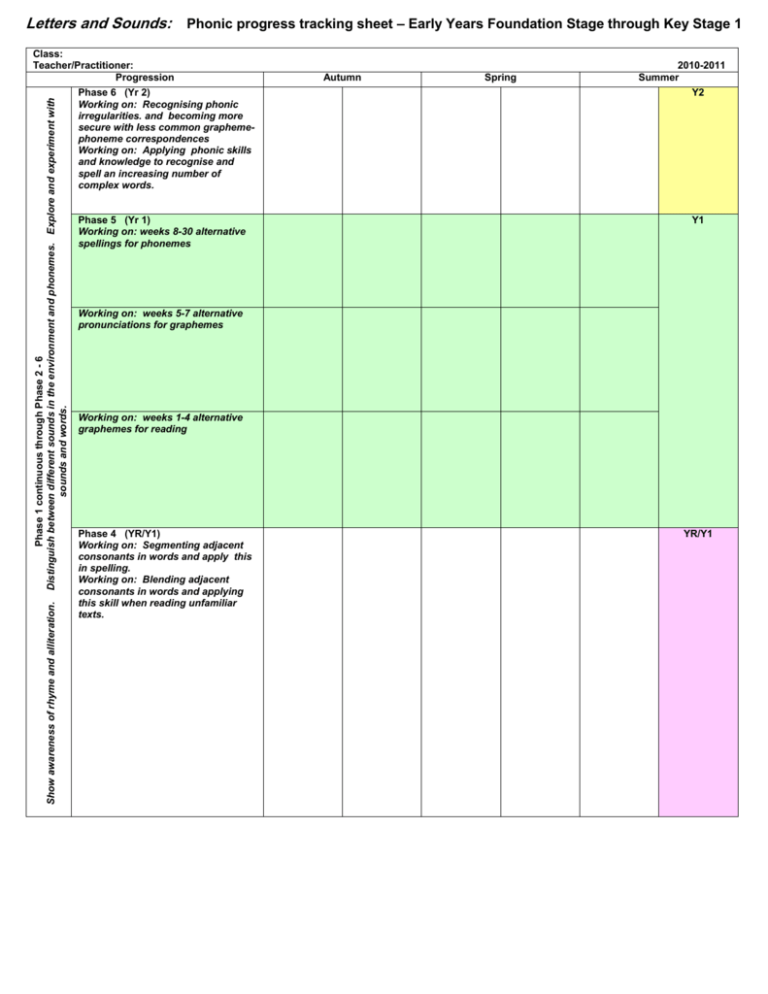
Letters and Sounds: Phonic progress tracking sheet – Early Years Foundation Stage through Key Stage 1 Show awareness of rhyme and alliteration. Phase 1 continuous through Phase 2 - 6 Distinguish between different sounds in the environment and phonemes. Explore and experiment with sounds and words. Class: Teacher/Practitioner: Progression Phase 6 (Yr 2) Working on: Recognising phonic irregularities. and becoming more secure with less common graphemephoneme correspondences Working on: Applying phonic skills and knowledge to recognise and spell an increasing number of complex words. Phase 5 (Yr 1) Working on: weeks 8-30 alternative spellings for phonemes Autumn Spring 2010-2011 Summer Y2 Y1 Working on: weeks 5-7 alternative pronunciations for graphemes Working on: weeks 1-4 alternative graphemes for reading Phase 4 (YR/Y1) Working on: Segmenting adjacent consonants in words and apply this in spelling. Working on: Blending adjacent consonants in words and applying this skill when reading unfamiliar texts. YR/Y1 Phase 3 (YR) Working on: Knowing one grapheme for each of the 43 phonemes Working on: Reading and spelling a wide range of CVC words using all letters and less frequent consonant digraphs and some long vowel phonemes. Graphemes: ear, air, ure, er, ar, or, ur, ow, oi, ai, ee, igh, oa, oo Working on: Reading and spelling CVC words using a wider range of letters, short vowels, some consonant digraphs and double letters. Consonant digraphs ch, sh, th, ng Working on: Reading and spelling CVC words using letters and short vowels. Letter progression Set 7: y, z, zz, qu Set 6: j, v, w, x Phase 2 Working on: Using common consonants and vowels Blending for reading and segmenting for spelling simple CVC words. Working on: Knowing that words are constructed from phonemes and that phonemes are represented by graphemes. Letter progression: Set 5: h, b, f, ff, l, ll, ss Set 4: ck, e, u, r Set 3: g, o, c, k Set 2: i, n, m, d Set 1: s, a, t, p Phase 1 (7 Aspects) Working on: Showing awareness of rhyme and alliteration, distinguishing between different sounds in the environment and phonemes, exploring and experimenting with sounds and words and discriminating speech sounds in words. Beginning to orally blend and segment phonemes.
